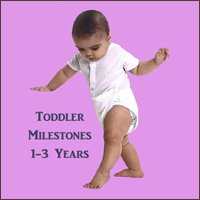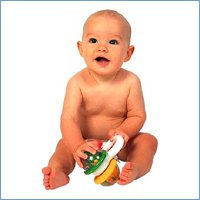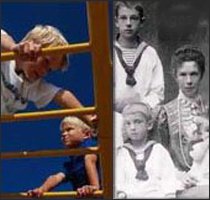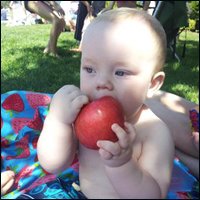Judgment Call:
Understanding the Teenage Brain
 Guest post by Amy Williams
Guest post by Amy Williams
Have you heard the saying: "If it looks like a duck, swims like a
duck, and quacks like a duck, then it probably is a duck?"
This phrase works great for identifying plants or animals. Typically
if an object exhibits certain traits, then it is more than likely to
be that item or fall into the same category. However, teenagers are
the exception to this rule and saying.
Teenagers might look
like adults, complete with facial hair or carefully applied makeup.
They may hold jobs, drive cars, register to vote, and serve in our
military. Our teenagers crave adult treatment and insist that they
are ready to handle to responsibility that accompanies age.
Anybody with teenagers, however, knows that teens are different from
adults in a few key ways. The types of decisions teens can make,
that can be baffling or unbelievable to many parents, are testament
to this fact.
The Developing Teenage Brain
Contrary to popular belief, teenagers are still in the midst of
important developments in their brains. An adolescent may look and
carry on like an adult, but his or her brain is not functioning on
an adult level. Researchers have discovered that the human brain is
not fully developed until the age of 25.
During adolescence,
the brain is about 80% developed. The last section of the human
brain to develop is the prefrontal cortex. This lobe is responsible
for controlling judgment and self-control. Emotions and hormones are
actively reshaping this area and over time create new connections
which lead to maturity.
Similar to early childhood brain
growth, the adolescent years see another surge of brain development.
It is important to encourage positive connections during this stage.
It is our job as parents to ensure our teens have the best chance at
a productive adult life.
Decoding Teen Behaviors
The transitional teenage years are full of risk factors heavily
influenced by hormones and emotions. These fluctuations have the
ability to affect a teen’s brain development which makes them more
susceptible to poorer impulse control and peer pressure.
These biological forces are the reason between the ages of 15 to 19
people face
higher mortality and injury rates. Crime and alcohol
abuse are also elevated during this age span when compared to other
age groups.
Thankfully, most adolescents emerge unharmed from
these tumultuous years, but understanding how a child’s maturity and
the teenage brain shape their rational thinking helps shed light on
their behaviors.
This understanding allows us to no longer
antagonize our teenage children, but relate to how they may have
come to these decisions. That doesn’t mean they should get off
scot-free necessarily, but that approaching teens with love and
understanding, even when it may seem more tough than usual, is best
for everyone, and will build a stronger, more effective parent-child
relationship.
Parenting the Adolescent Brain
Predicting an adolescent’s disposition can be a tricky endeavor. It
can be similar to the hit-and-miss weather forecasts on the six
o’clock news. Researchers are gathering data to help us understand
the development of an adolescent’s brain and their judgment skills.
Teens are undergoing radical physical and chemical changes in
their bodies. Awkwardness and impaired rationalizing skills are
almost guaranteed to go hand-in-hand with adolescence. They may not
plan to be squalling mad or twisting with laughter at 10 minute
intervals, but their
anatomy is being flooded with mixed signals
which are out of their control.
Their brains process
information and learn quickly, but they are more susceptible to the
effects of sleep deprivation, alcohol, and sensory overload. Teens
are still learning how to decode emotions and correctly read facial
expressions which can lead to misunderstandings or appropriate
responses to situations.
This can lead to a lot of the
confusion that accompanies teenage years. It’s not that teens are
not perceptive of some of these signals, but that they become harder
to interpret during this volatile brain state.
Holding On For the Ride
As parents, there are times it might feel like we are “going
quackers”. We can witness a wide fluctuation of teen behaviors
on any given day. One minute they are good as gold--yes,
sometimes even polite and well mannered. Then, suddenly in a
flash: they are slamming doors and crying in their rooms.
Taking an in depth look at how a teenage brain develops
and matures
can help remove some of the mystery behind a
juvenile’s actions. Maintaining open lines of communication,
setting clear expectations, and proper guidance can help
families navigate the adolescent years.
This can lead
to, for example, setting up a system of forgiveness with your
teen. If your teen behaves poorly in a way that’s
out-of-character or unhabitual, consider taking a look at what
may have led to this decision, and forgiving.
The good
news is that science and parental direction can enrich a
teen’s overall experience and brain development.
For more information, see the infographic below.

 Amy
Williams
Amy
Williams
Amy Williams is a journalist based in Southern California.
As a mother of two, she has learned a lot of things the hard way, and hopes to use her experience as a parent to help other parents raise their children to be the best that they can be.

Want to stay in touch and get the latest news?
Sign up
for my free newsletter
Parent Coaching
- For Inner Peace, Clarity and a Deeper Connection to Your Child
 Being a parent can feel like a double-edged sword. Life with kids may feel like the greatest gift you have ever received, while at the same being hugely challenging, often leaving you confused, stressed and overwhelmed.
Being a parent can feel like a double-edged sword. Life with kids may feel like the greatest gift you have ever received, while at the same being hugely challenging, often leaving you confused, stressed and overwhelmed.
When we feel like this, we've lost touch with ourselves. We can't hear our own inner voice, and it's difficult to know what is 'right' for us and how to act.
I offer in-depth parent coaching to help you regain your balance and get back in touch with yourself. From a place of inner peace and clarity, your will find your own answers which will help you reconnect with your child from a place of unconditional love and acceptance.
Read more about my parent coaching here.
Where Would You Like to Go Next?
Age Specific Child Development Articles
 The Most Significant Developmental Milestones: Understand Your Child all the Way through the 6 Stages of Child Development. |
 A Newborn Development Guide About the First Physical, Psychological and Social Infant Milestones and How to Handle Them! |
 In-Depth List of All the Baby Milestones Reached during the First Year: Exciting Insights into Physical, Psychological and Social Baby Development. |
 Inspiring Toddler Development Guide: A Long List of Toddler Milestones and Positive Parenting Tips for Parenting Toddlers. |
 A Guide to the Early Child Development Stages and a List of Child Development Milestones from 4-6 Years. |
 Stages of Child Development from 7-12 Years: A list of Physical, Cognitive and Social Developmental Milestones. |
 Teen Development and Adolescent Development: Physical, Cognitive and Social Developmental Milestones. |
Other Child Development Articles
 Jean Piaget's Object Permanence Developmental Stages: Theoretical Outline, Modern Critique and Parental Advice! |
 A Fascinating Journey into the Psychology of Children: From the Grand Masters' Fixation with Development Stages to the Context Focus of Today! |
 Keeping Track of Child Development Milestones: Spot Deviations like Early ADHD or Autism Symptoms. |
Back to the top of this page about Judgment Call: Understanding the Teenage Brain
Go to the Positive Parenting Ally Homepage







